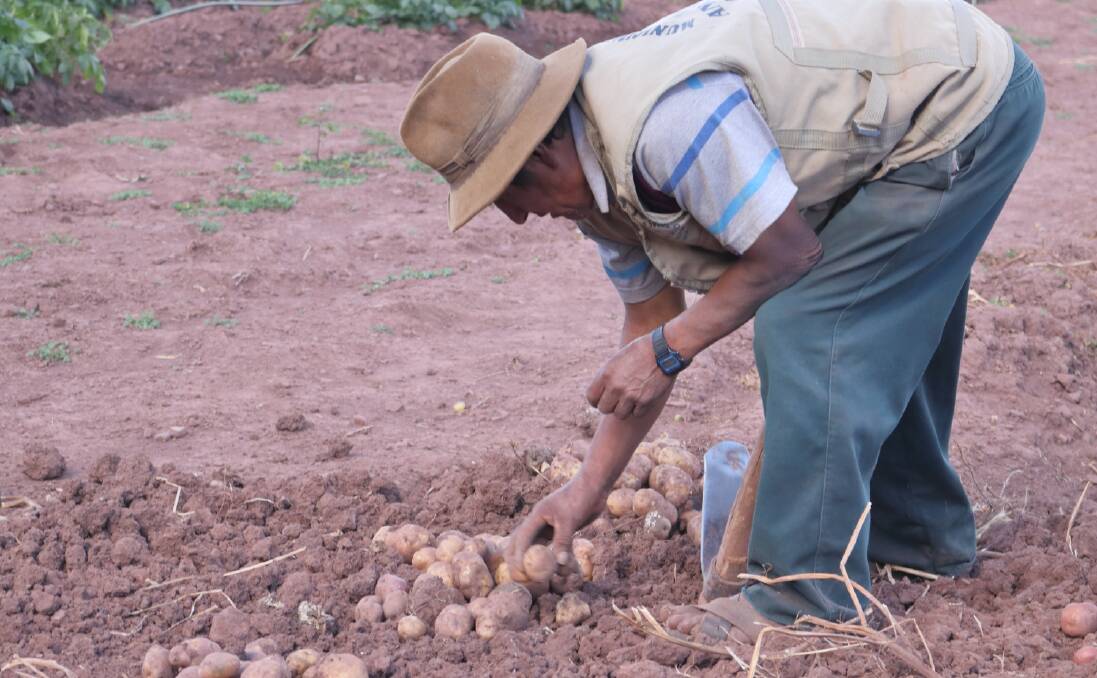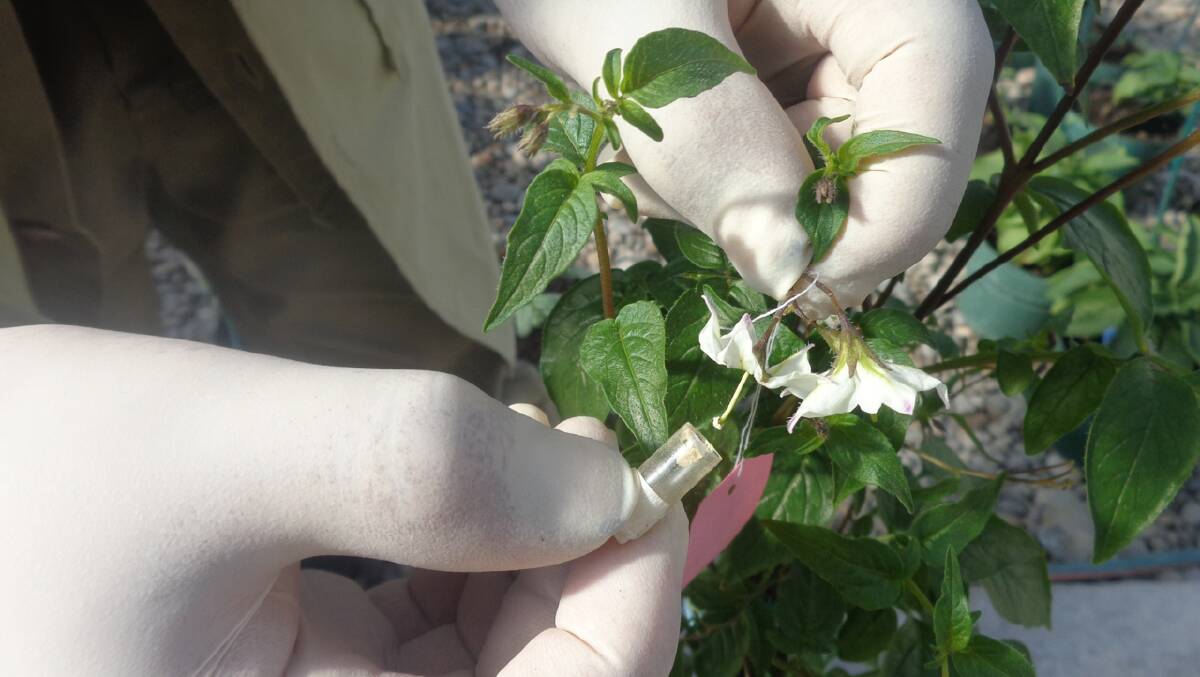
THE strain of drought might predominantly draw the focus of the livestock industry in Australia but potato growers may benefit from South American research looking at more drought tolerant lines.
Subscribe now for unlimited access to all our agricultural news
across the nation
or signup to continue reading
The International Potato Centre (CIP) in Peru is are using wild potatoes to develop climate-resilient varieties.
The resulting potatoes combine heat and drought tolerance with resistance to the most important diseases affecting potato crops, late blight and bacterial wilt, which are expected to become greater threats as global warming advances.
Globally, late blight alone causes billions of dollars in losses for potato farmers, who spend more than USD 1 billion per year on fungicides to control the disease.
The development of disease resistant potato varieties can substantially reduce production costs and help improve the incomes and diets of small-scale potato farmers.
RELATED READING
Scientists spent the past four years evaluating wild – often inedible – potatoes stored at CIP’s genebank in Lima, and crossing them with cultivated potatoes, with support from the Crop Trust and the Government of Norway.
The CIP genebank safeguards one of the world’s largest collections of the potato’s wild relatives, some of which grow in areas with harsh climates or pest and disease pressure.
Those plants evolved mechanisms to cope with extreme conditions, and breeders want to transfer those traits into cultivated varieties.
Because crop wild relatives are very different from cultivated species, using them for crop improvement requires a laborious pre-breeding process.
A second phase of Crop Trust support will allow CIP scientists to continue pre-breeding for two more years while sharing potato clones that contain resistance genes from wild relatives with other crop improvement programs.

CIP potato breeder and project leader, Dr Thiago Mendes, said the researchers will share their climate-resilient potatoes with breeding programs in Kenya, Peru and worldwide for crossing with locally adapted potatoes.
"We will also provide our partners with training in the evaluation, selection and use of crop wild relatives in potato breeding while raising awareness of their potential globally,” Dr Mendes said.
As the crossbred potatoes developed in phase one may not possess all the characteristics that consumers and farmers want, CIP and partners will work with smallholder farmers in Peru and Kenya to evaluate them and select the best ones.
Kenya and Peru are ideal places to introduce climate-resilient potatoes, since potato provides livelihood and employment opportunities to more than three million people in the two countries.
Small-scale farmers can’t always afford the fungicides needed to control late blight disease, which means they suffer most.
- Dr Thiago Mendes
“Bacterial wilt and late blight already cause significant economic losses, particularly to small-scale farmers in Africa, and they are expected to become more of a problem as a result of climate change,” Dr Mendes said.
“Small-scale farmers can’t always afford the fungicides needed to control late blight disease, which means they suffer most.
Dr Mendes said because the late blight pathogen is rapidly changing, the effectiveness of fungicides diminishes over time.
"Crop wild relatives represent a new, valuable source of resistance,” Dr Mendes said.
The Crop Trust's Dr Benjamin Kilian, said crop wild relatives are a largely untapped resource for crop breeders to adapt the most important crops to climate change.
“We are excited to help CIP use them to improve potato, a vital global staple,” Dr Kilian said.
This work is part of the initiative “Adapting Agriculture to Climate Change: Collecting, Protecting and Preparing Crop Wild Relatives” which is supported by the Government of Norway.
The project is managed by the Global Crop Diversity Trust with the Millennium Seed Bank of the Royal Botanic Gardens, Kew UK and implemented in partnership with national and international genebanks and plant breeding institutes around the world.

